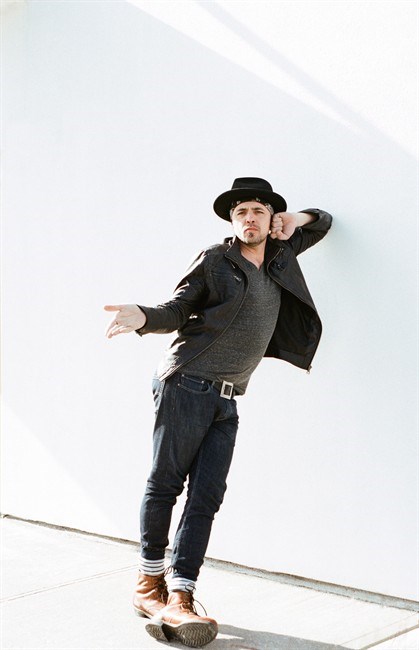
Hawksley Workman is shown in an undated, handout photo. THE CANADIAN PRESS/ho-Vanessa Heins
June 04, 2015 - 3:00 AM
TORONTO - The first time Hawksley Workman answers the phone, he feels on the verge of vomiting. The next time, he's apologizing profusely.
As it turns out, the Juno winner has begun a serious workout regimen under the rigid instruction of a New Zealand-reared local near his woodsy Ontario home, and the first call had interrupted a moment of nauseous reflection.
He compares the routine to the popular Insanity workout. His trainer is "sadistic," he says fondly.
"She enjoys seeing people in absolute pain," he continues. "There's euphoria — once the puke feeling finally dies down.
"But truly, when it's happening, it's a living hell."
He started working out to prepare for the rigours of drumming in Mounties, his band with Hot Hot Heat's Steve Bays and Limblifter's Ryan Dahle.
The high-strung energy of that project carried over to his newly released solo record, "Old Cheetah."
"It feels like a narrative retelling of the last 15 years of my life. It's a funny accumulation of knowledge and wisdom and heartbreak and self-loathing and anxiety.
"Ultimately, it's filtered through this guy who — at 40 — (cares) way less but is also more involved and more creatively engaged than I've been maybe ever."
CP: How did drumming again spark "Old Cheetah?"
Workman: Well, drums is my first instrument.
That's why I go to the gym. I refuse to sound like a 40-year-old man. Rock and roll from a drummer's perspective is the sound of virility.
Modern music production has neutered rock drumming. Other than Dave Grohl and Foo Fighters — I'm not really a fan, but I have moments where I can't believe how amazing his drumming is, especially on that ("Queens of the Stone Age") record.
That was the first time we'd heard real rock drumming since the '70s.
So I took all that reinvigorated drum energy and I just poured it right into "Old Cheetah."
———
CP: Early in your career, labels invested a lot of money in you. How did pressure affect you?
Workman: There were four years where the idea of not being alive went through my mind daily.
That's a weird thing to feel like: "If my time doing this job is done, then I don't know what this life is about anymore, and I don't know if I want to live this life anymore."
I did emerge from that. It took years.
When you're the label's next big hope, you're everybody's best friend. But when you're costing people money and potentially their jobs, you get dropped pretty quick from the favourites club.
My experience with Universal Records in hindsight was absolutely wonderful.
Did I feel burned at the time and disappointed with myself? Yes, but looking back I benefited from a lot of passionate people spending their time and money on a guy who never really belonged in the mainstream anyway.
———
CP: You produced Tegan and Sara's first album. How do you feel seeing their success?
Workman: They were so energetic, headstrong and precocious in those days — and they were 18. The two of them were like a miniature army.
They took a lot of heat from people in the business because they were so self-assured. There were people going: "One day they'll be humbled because they can't possibly know at 18."
The thing is, they DID know. And they worked their faces off and they've evolved and changed.
"Monday Monday Monday" is a song I play when I'm having a drinky party around my house and I'm the DJ. They're super talented and creative.
———
Answers have been edited and condensed.
Follow @CP_Patch on Twitter.
News from © The Canadian Press, 2015